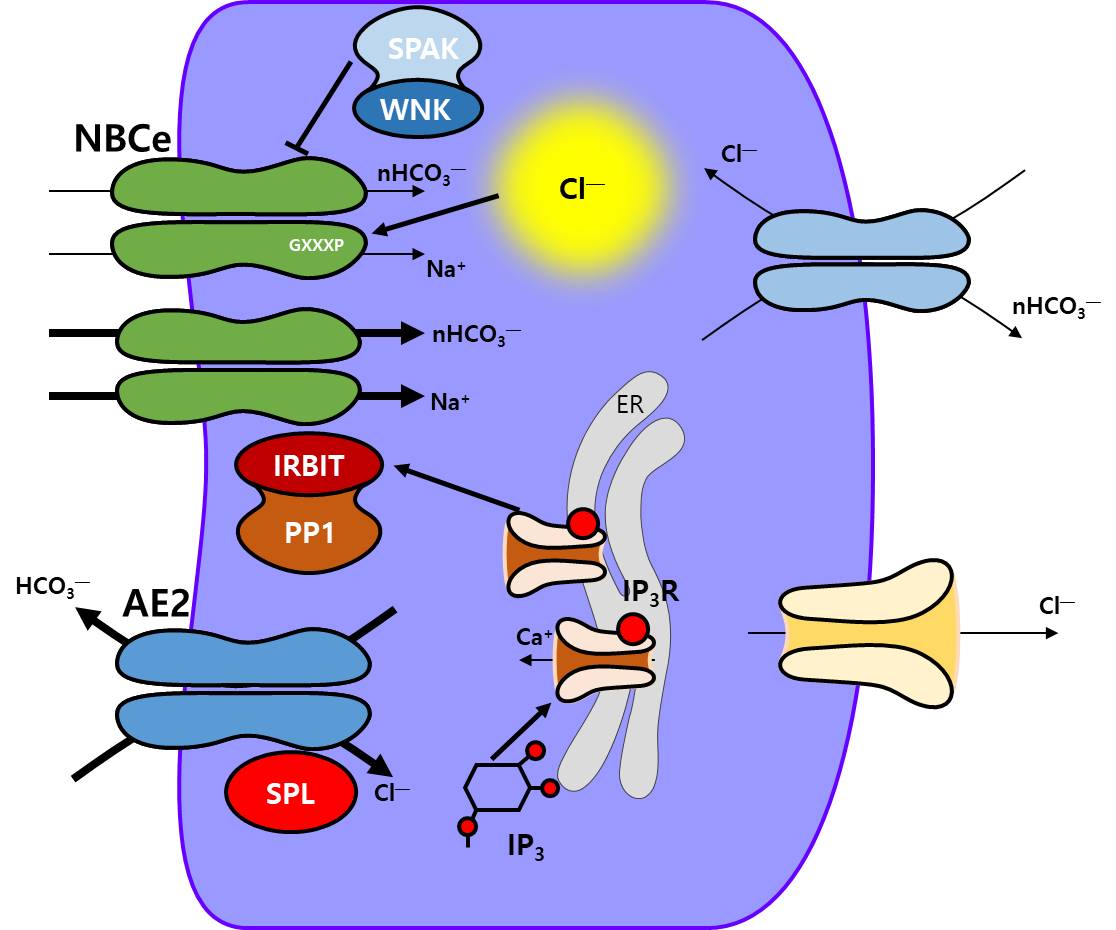The changes of HCO3━ have critical roles with acid-base balance in various epithelia including kidney, lung, and exocrine systems. Additionally, HCO3━ transport is involved in immune system, tumorigenesis, tooth development, muscle system, digestive system, and reproductive system by regulation of pH. HCO3━ transport is mediated by several transporters and channels such as sodium bicarbonate cotransporters (NBCs), Cl━/HCO3━ exchangers (CBEs), and cystic fibrosis transmembrane conductance regulator channels (CFTRs). Our studies focused on salivary secretion and cellular migration with these transporters and several regulatory molecules of HCO3━ transporters. The regulatory molecules include inositol-1,4,5-triphosphate (IP3) receptor binding protein released with IP3 (IRBIT), with-no-lysine (WNK) kinase, sterile 20 (STE20)-related proline/alanine-rich kinase (SPAK), spinophilin (SPL), and phosphatidylinositol 4,5-bisphosphate (PIP2). These factors mediate the supportive or inhibited function of HCO3− transport via NBCe1-B, SLC26A6, and AE2
- bicarbonate transporter
- secretion
- electrolyte homeostasis
- ion transporters and channels
This entry is adapted from the peer-reviewed paper 10.3390/ijms21010339

